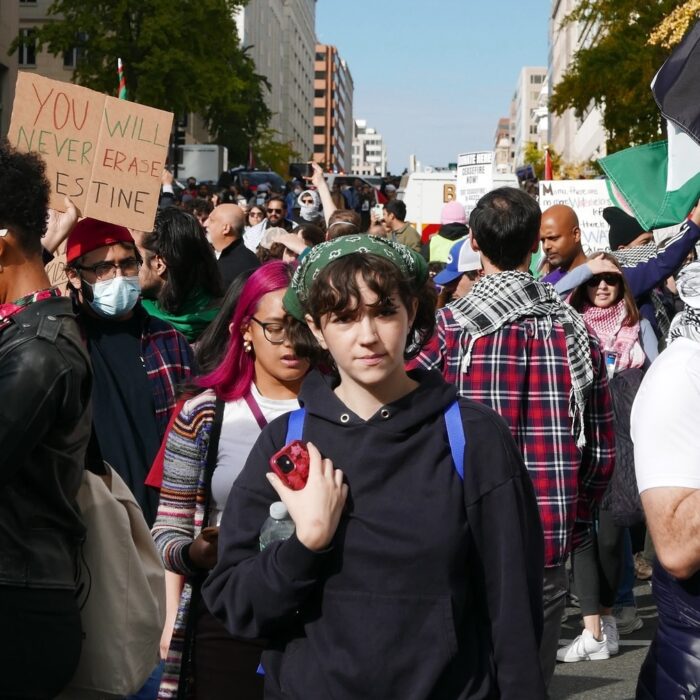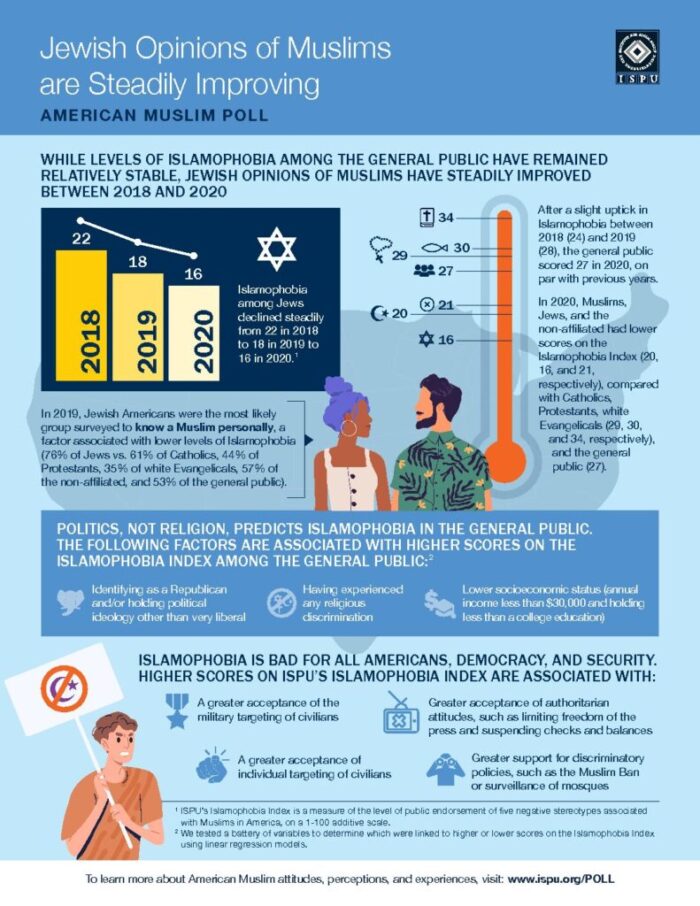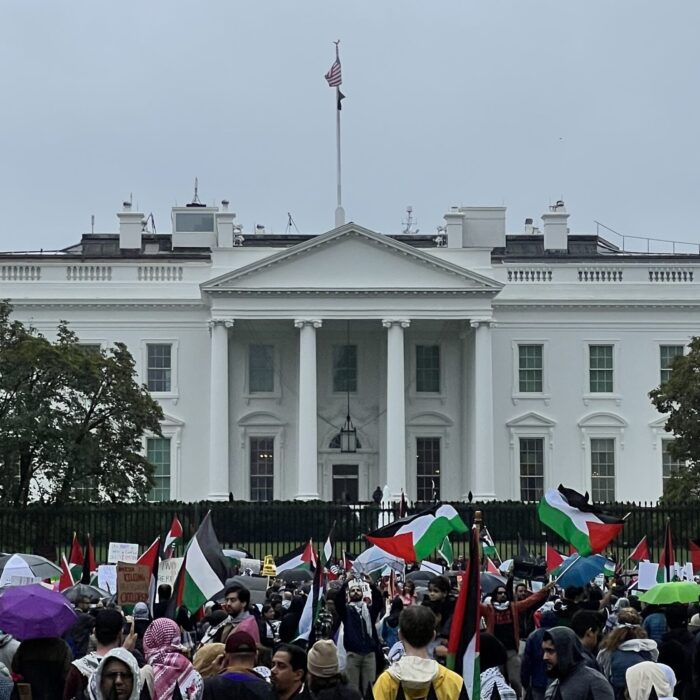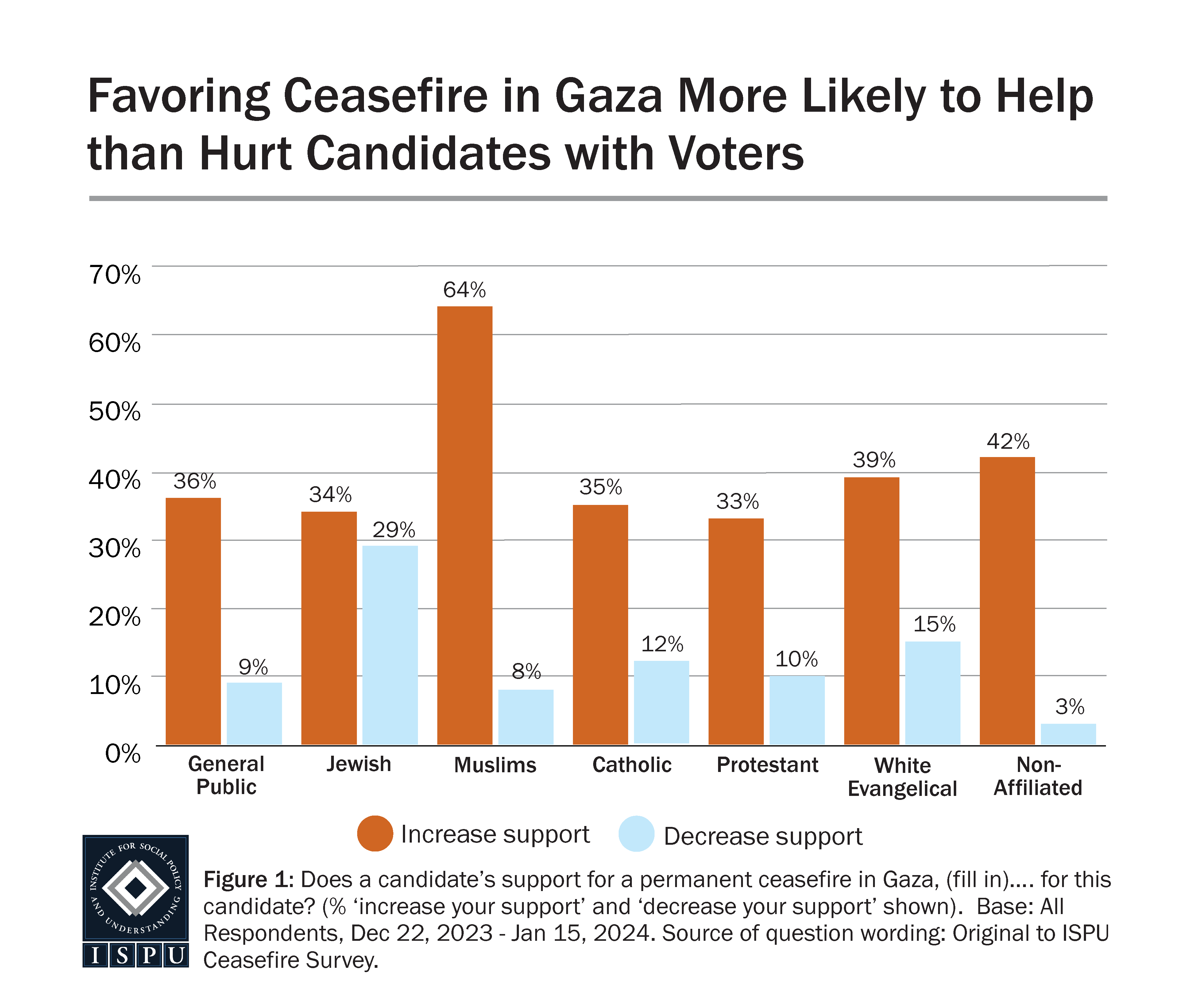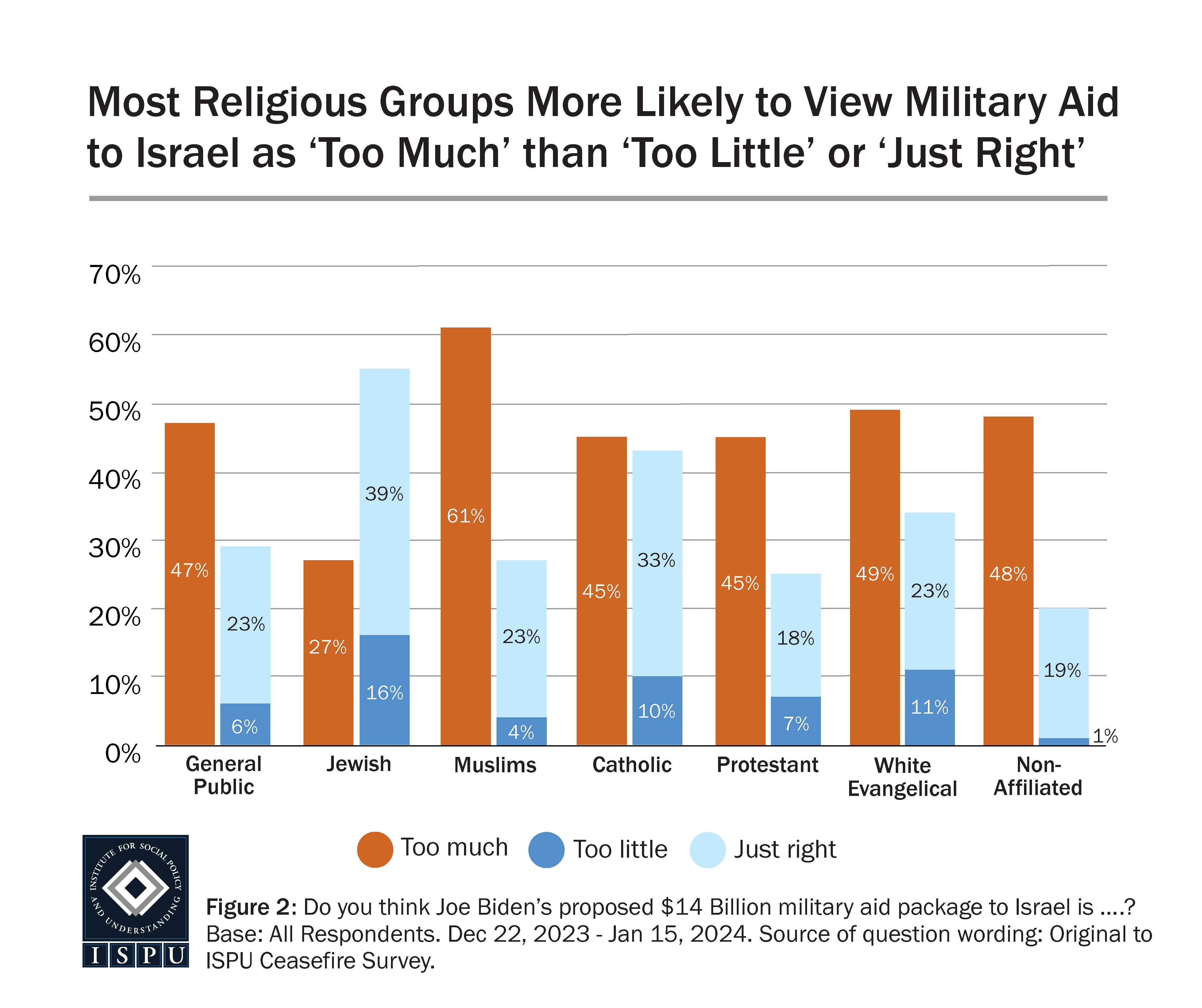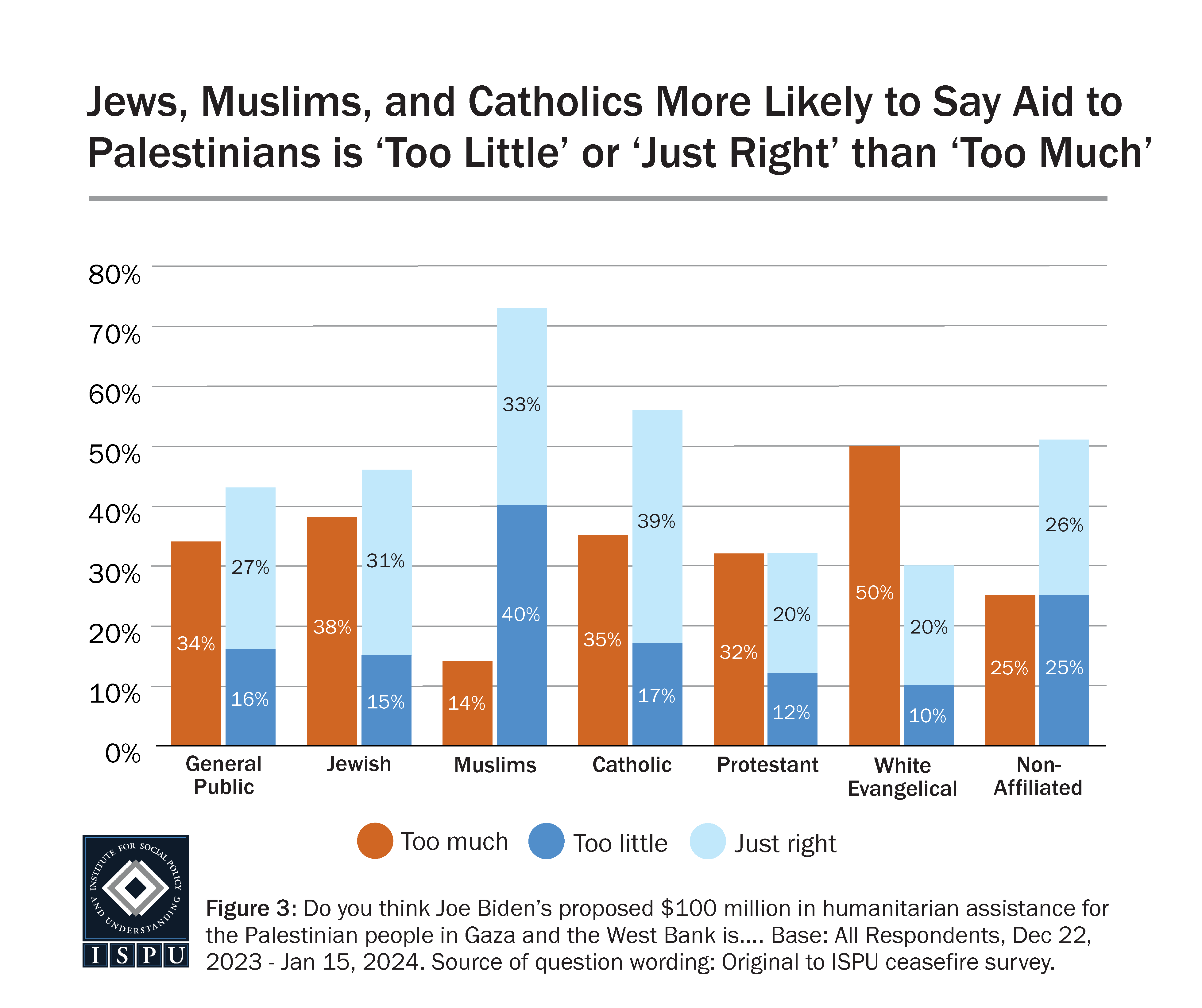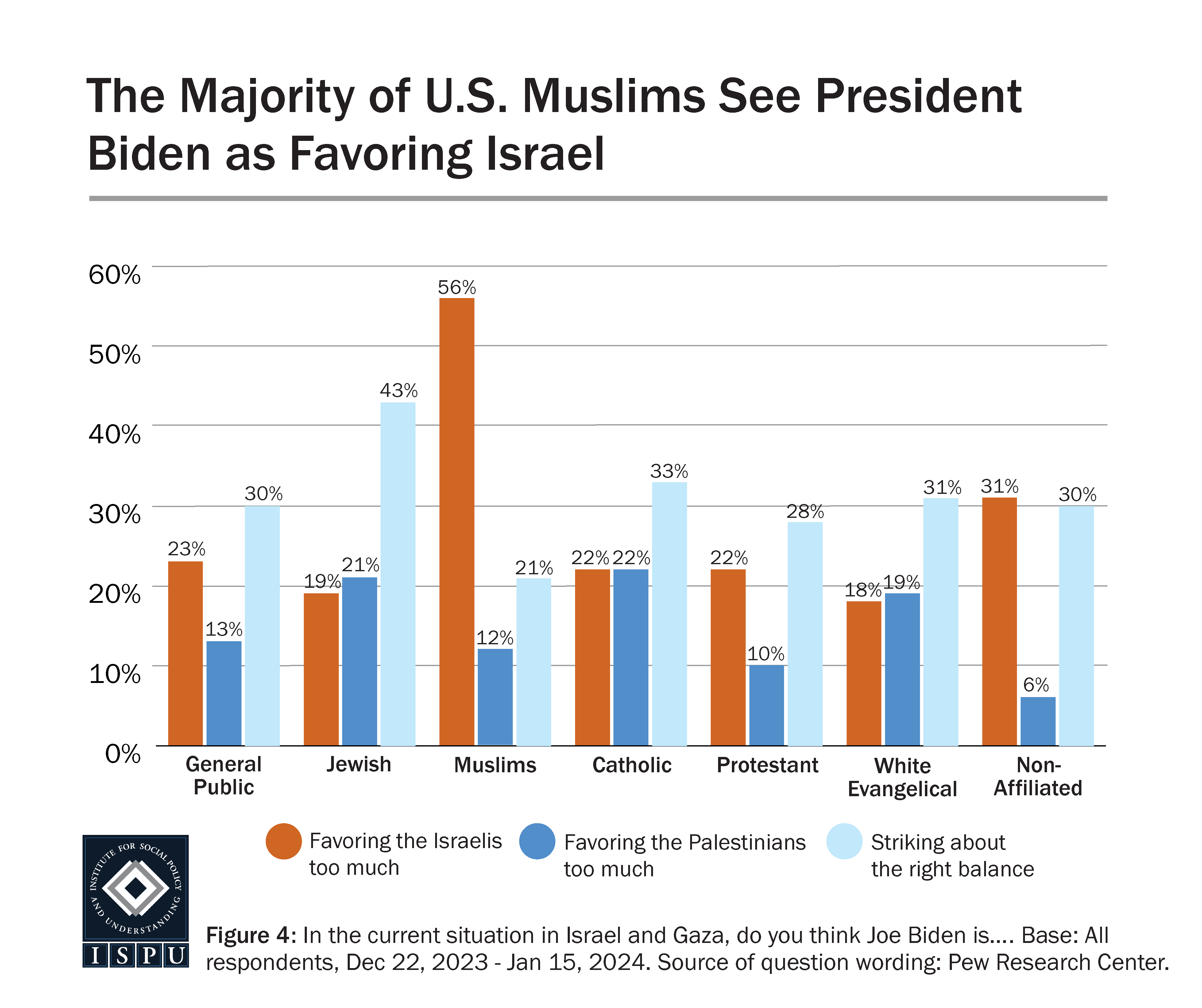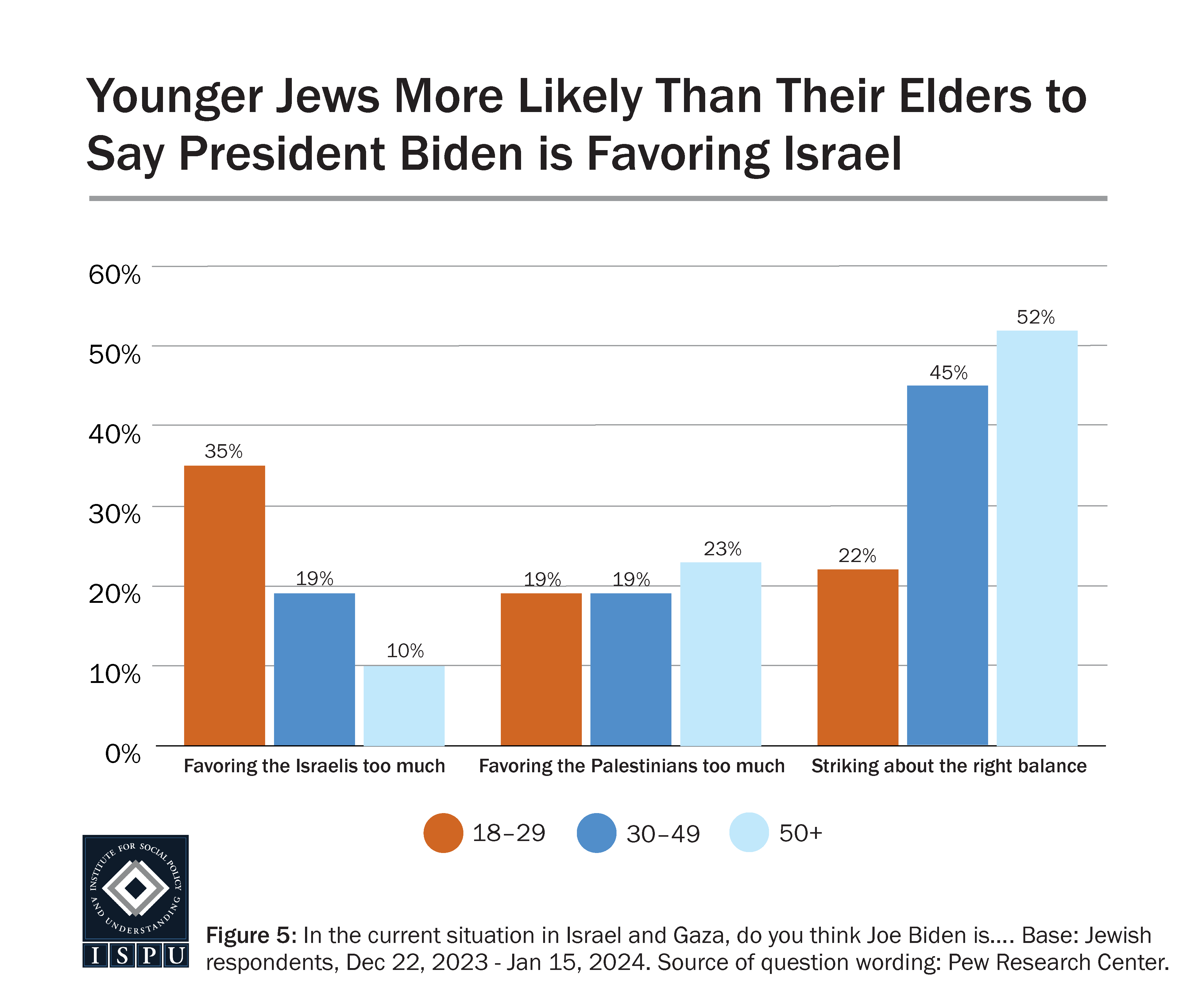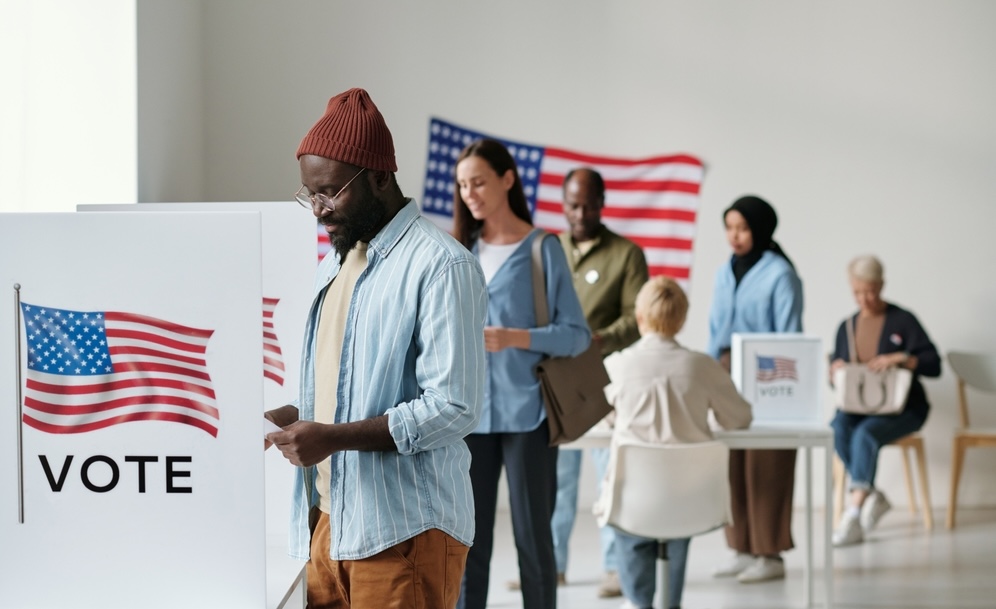
Americans More Likely to Increase than Decrease Their Support if Candidate Favors Ceasefire
March 5, 2024 | BY ERUM IKRAMULLAH
The crisis in Gaza, which as of this writing has claimed the lives of around 1,200 Israelis and more than 30,000 Palestinians, has captured the attention of the world. Since October 7 several surveys have captured American public opinion on the situation. These studies examined the views of the old and young, Democrats and Republicans, men and women, college-educated and non-college-educated. The missing voice has been that of religious groups, particularly Muslim and Jewish Americans, who are often perceived as on opposing sides of this crisis.
This survey aimed to assess the views of these two key American religious groups, as well as Catholic, Protestant, including white Evangelicals, and those not affiliated with a religious group, on a number of contentious topics. This is the second in a series of brief analysis pieces, this one focused on American religious and non-religious groups’ support for candidates who support a permanent ceasefire in Gaza, President Joe Biden’s handling of the crisis, and the proposed aid package to both the Israeli military and the Palestinian people. The full methodology is available in Appendix I.
Here is what we discovered:
RELATED RESOURCES
- 09 February, 2024

Religious Groups’ Views on Ceasefire:
Americans More Likely to Increase than Decrease Their Support if Candidate Favors Ceasefire
March 5, 2024 | BY ERUM IKRAMULLAH
The crisis in Gaza, which as of this writing has claimed the lives of around 1,200 Israelis and more than 30,000 Palestinians, has captured the attention of the world. Since October 7 several surveys have captured American public opinion on the situation. These studies examined the views of the old and young, Democrats and Republicans, men and women, college-educated and non-college-educated. The missing voice has been that of religious groups, particularly Muslim and Jewish Americans, who are often perceived as on opposing sides of this crisis.
This survey aimed to assess the views of these two key American religious groups, as well as Catholic, Protestant, including white Evangelicals, and those not affiliated with a religious group, on a number of contentious topics. This is the second in a series of brief analysis pieces, this one focused on American religious and non-religious groups’ support for candidates who support a permanent ceasefire in Gaza, President Joe Biden’s handling of the crisis, and the proposed aid package to both the Israeli military and the Palestinian people. The full methodology is available in Appendix I.
Here is what we discovered:
RELATED RESOURCES
- 09 February, 2024
1. Favoring a ceasefire helps candidates with voters
Muslims are eight times more likely to say a candidate’s support for a permanent ceasefire in Gaza increases (64%) versus decreases (8%) their support for the candidate. As key constituents in battleground states such as Michigan, Pennsylvania, and Virginia, this is important to note for the 2024 elections. Moreover, half of Democrats in the general public (50%) say favoring a ceasefire increases their support for a candidate, versus 6% who say it decreases support. This means Democrats in general are more than eight times more likely to say a candidate’s support for a permanent ceasefire in Gaza increases versus decreases their support for that person.
2. The plurality of most American religious groups view military aid to Israel as ‘too much’
Muslims and Jews are the exceptions, with the majority of Muslims (61%) seeing the aid package as ‘too much’ military funding, and the plurality of Jews (39%) viewing it as just the right amount of military funding. Half (50%) of young Jews (18-29), however, see aid to Israel as ‘too much’, while 5% see it as ‘too little’. Young Jews are more than twice as likely as their elders (23% of 30-49 year olds and 18% of 50+) to view military aid to Israel as excessive. Similarly, the majority of young people in the general public (53%) say military aid to Israel is ‘too much’. More than seven in ten (71%) young Muslims rate military aid to Israel as excessive.
3. Americans are split on humanitarian aid to Palestinians
A near majority of white Evangelicals (50%) say the proposed $100 million in humanitarian assistance for the Palestinian people is ‘too much’. Muslims, on the other hand, are more likely than all other groups surveyed to rate the proposed aid package as ‘too little’ (40% versus 10%-25%). Catholics (39%), Muslims (33%), and the non-affiliated (26%) are more likely than Protestants (20%) and white Evangelicals (20%) to say proposed humanitarian aid to Palestinians is ‘just right’. Jews are more likely than white Evangelicals to also hold this view (31% versus 20%).
4. The majority of U.S. Muslims see President Biden as favoring Israel
The majority of Muslims (56%) see President Biden as ‘favoring Israelis too much’ in the current situation in Gaza. Roughly one in five of other religious groups, and 31% of the non-affiliated, align with this view. The majority of white Evangelicals (50%), Jews (64%), and Catholics (55%) say Biden is either ‘striking the right balance’ or ‘favoring the Palestinians too much’. The plurality of Protestants (38%), non-affiliated (36%), and the general public (43%) say Biden is either ‘striking the right balance’ or ‘favoring the Palestinians too much’.
5. Young Jews more likely than their elders to say President Biden favoring Israel
Among Jews, the plurality of young people (18-29) see President Biden as favoring Israel too much (35%), while 19% say he is favoring the Palestinians too much, and 22% say he is striking the right balance. Younger Jews (35%) are almost twice as likely as middle-aged Jews (19% of 30-49 year olds) and more than three times as likely as older Jews (10% of 50+ year olds) to view Biden as favoring Israel in the current crisis. A similar trend exists across age cohorts in the Muslim and the general public sample but with far less stark differences.
Conclusion
U.S. involvement in the conflict through sustained and long-term military and diplomatic aid to Israel means that the course this crisis takes is directly relevant to the American public, especially ahead of the 2024 general election. ISPU will continue to inform the dialogue on this important issue with a series of analysis pieces throughout early 2024.
DOWNLOAD THE ANALYSIS PDF

Erum Ikramullah is the Senior Research Project Manager at ISPU, where she manages the day-to-day activities of the organization’s research studies. Learn more about Erum→





